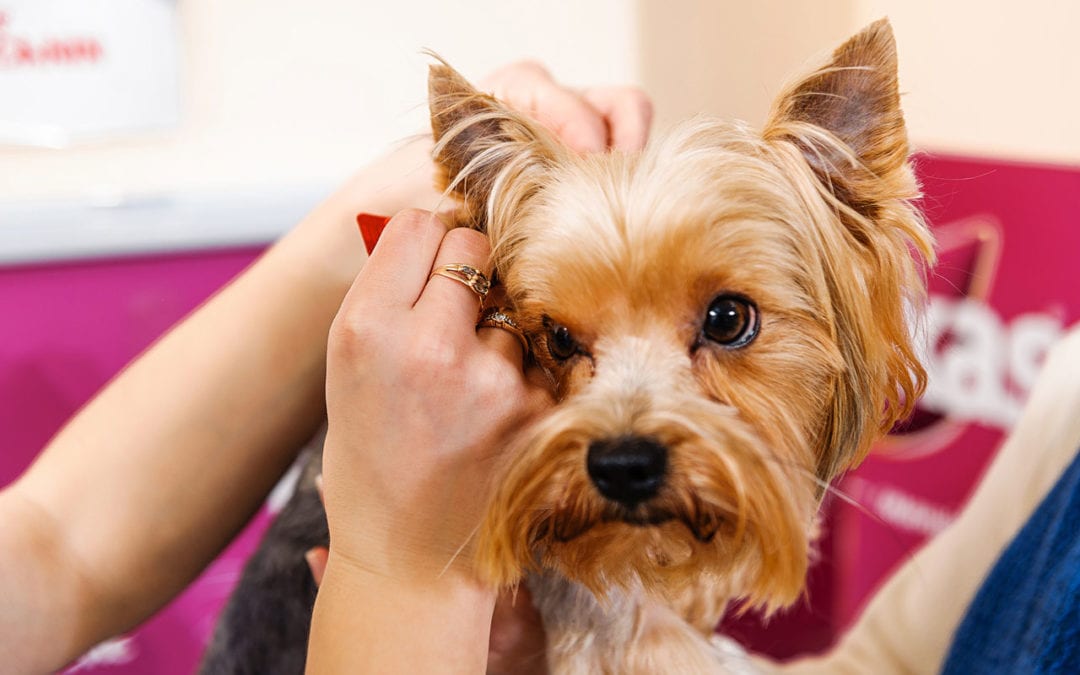It’s everyone’s back to school nightmare – head lice. If you have had a child come home with it, you may be familiar with this terrible infestation that is not only gross but hard to get rid of. As soon as one family member contracts lice, you can expect the rest to get it, too. But what about the furriest of all family members? Can pets get lice?
Good question! Union Lake Veterinary Hospital answers the question “Can pets get lice” and look at why lice can pose a problem.
Can a Pet Get Lice?
The good news when it comes to head lice is that our pets cannot contract it. At least, not the lice you’re thinking of. This is because these lice tend to like the body temperature of humans and will seek them out over a pet. Before you rejoice, though, there are some specific types of lice that dogs and cats do get.
The types of lice out there are species-specific. The chance of transferring lice from a dog to a human, or a dog to a cat is highly unlikely. They stick to their preferred species. The life cycle of lice is typical of parasites like fleas, which are egg, nymph, and adult. After lice eggs (nits) hatch, they take about a week to develop into an adult, which then starts the life cycle all over.
Dogs can get lice and must be treated like you would treat head lice, which means plenty of good hygiene, the right treatment, and prevention. Cats can get lice as well but the lice are specific to felines.
How Do I Know if My Pet Has Lice?
Lice can look like other skin related problems in pets, like allergies or fleas, but there are indicators that your pet may have lice:
- Scratching, itchy skin
- Dry or matted coat
- Hair loss, especially around ears, neck, and groin
- Infections from unhealed bites
- Anemia (if the infestation is severe)
A diagnosis of tapeworms can reveal an underlying lice problem since they are spread by lice. If your pet is displaying signs of lice, have them seen by your veterinarian.
Treating lice relies on the use of insecticides that usually come in the form of spot-on applications, shampoos, dust, or sprays. To rid your pet of the eggs before they hatch, you will need to use a fine toothed comb to run through the fur, and then carefully wash your pet. You will need to do this more than once to prevent additional eggs from hatching.
Usually, you will need a second one insecticide treatment, approximately 7-10 days after the first dose.
Preventing Pet Lice
Most normal, healthy dogs and cats don’t get lice, but there are always exceptions to the rule. Here are some suggestions to prevent pet lice keep your pets safe from other parasites:
- Keep your pet well groomed and clean by shampooing your pet regularly.
- Pet preventatives are an important part of parasite prevention. Talk to your veterinarian about the right flea, tick, and heartworm medicine for your fur friend.
- Cut back overgrown grasses and weeds in the yard.
- Avoid exposing your pet to stray animals.
- Discourage wildlife from finding shelter in the yard by removing pet food, hiding spots, bird feeders, open trash cans, etc.
- Brush your pet regularly.
- Launder your pet’s bedding and bed often.
We hope this answered your questions about whether pets get lice. In most situations, keeping your pet on a parasite preventative is vital to their health and can prevent most parasitic diseases. While we don’t have a vaccine for lice, we can keep them away by practicing steps to prevention. Please call us for more information.

